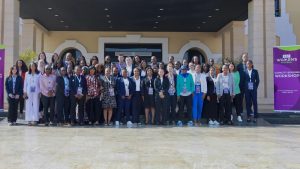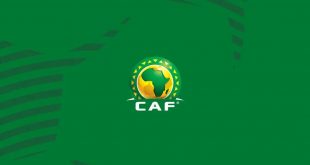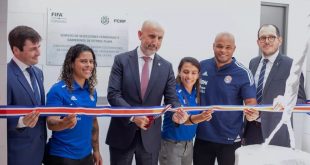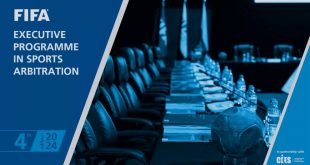 The FIFA Women’s World Cup 2023 in Australia and New Zealand demonstrated to the world that women’s football in Africa is going from strength to strength. For the first time ever, three teams from the continent proudly progressed to the Round of 16: Nigeria, South Africa and Morocco. The introduction of the CAF Women’s Champions League in September 2020 had already proven to be another milestone.
The FIFA Women’s World Cup 2023 in Australia and New Zealand demonstrated to the world that women’s football in Africa is going from strength to strength. For the first time ever, three teams from the continent proudly progressed to the Round of 16: Nigeria, South Africa and Morocco. The introduction of the CAF Women’s Champions League in September 2020 had already proven to be another milestone.
In order to provide more impactful support for women’s football in Africa and continue to raise standards, CAF, together with FIFA, recently hosted a women’s football seminar aimed at strengthening the operational performance of member associations.
“In 2019, we set up the first edition of this seminar. Since then, there has been significant progress in women’s football in Africa” said Meskerem Goshime, Head of CAF’s Women’s Football Development Department, welcoming the participants. “This workshop gave us the opportunity to reflect on these positive changes and discuss how to maintain this momentum and achieve greater competitiveness on a global level, which is the goal of CAF.”
At the four-day seminar, women’s football representatives (a blend of women’s football committee members and development officers) focused on the latest trends in the global women’s game. FIFA experts Thuba Sibanda and Simon Toselli provided the participants with insights on topics as diverse as strategic planning, leadership, communication, marketing, safeguarding and club licensing. The also underlined FIFA’s suite of development programmes which also help to upskill and empower women in football.
“The sessions were great and I learnt a lot. But what really stood out for me was the networking. Talking to the other participants, I could see that we have similar challenges. I also learned how each of them is trying to solve them in a unique perspective that relates to their environment,” Blandina Mdebwe, who has been working as a women’s football manager for the Malawi Football Association since July 2023, said.
In 2023, Malawi won the COSAFA Women’s Championship in South Africa, demonstrating the forward progress being made on the pitch. The Scorchers beat FIFA Women’s World Cup participants Zambia 2-1 in the final. The women’s national team is also benefiting from the modernisation of the technical centre in Blantyre, which was realised with funds from the FIFA Forward Programme.
“It shows that the talent is there. What matters now is organising and supporting women’s football,” Mdebwe makes clear.
She already has her sights set on the next steps that need to be taken to further advance women’s football in the country. “The next big step would be to find a sponsor for the league. Secondly, we need a consistent calendar based on the men’s calendar, such as a start time for the league, a rest period and a break. And thirdly, I would say that we need an overarching brand for women’s football; an image, slogan or feature that makes it recognisable that it’s women’s football.”
In achieving these goals, the association is also benefiting from the support of FIFA through its Women’s Development Programmes. Malawi has applied for five of the eight available: Women’s Football Strategy; Women’s Football Campaign; League Development; Club Licensing and Capacity-Building.
Malawi’s U-20 women’s national team head coach, Maggie Chombo Sadik, was also one of twenty women’s football coaches from around the world to take part in the most recent edition of FIFA’s 18-month Coach Mentorship Programme.
“I am excited to see which topics we will choose next and how we will implement them. I am excited to see what the strategy will look like, how we can implement it and align it with the President’s manifesto,” Mdebwe continued.
The Rwandan Football Association (FERWAFA) is also focusing on a strategic plan for women’s football, which was developed in collaboration with FIFA. Creating a network was of equally great importance to Anne Mbonimba, FERWAFA Women’s Football Development Officer.
“I met colleagues from different countries, we exchanged ideas about women’s football and our daily work,” she says. “I learnt how to deal with problems as a leader and I also learnt how to draw up an action plan for my work. The trainers have empowered us about how to perfect our daily duties in women football.”
Marina Radulovic, FIFA Women’s Football Development Manager, concluded by reiterating how the participants’ experiences underlined “the importance of meeting people working on the ground, networking, and understanding their daily challenges.
“Via Thuba, Simon and myself, we were able to present the tailored support FIFA can provide through our women’s development programmes as well as the knowledge sharing and guidance available within these FIFA programmes. We are here to work together with CAF, and to support the member associations as they each continue their respective journeys.”
 Arunava about Football A look at football & the world through my eyes!
Arunava about Football A look at football & the world through my eyes!



